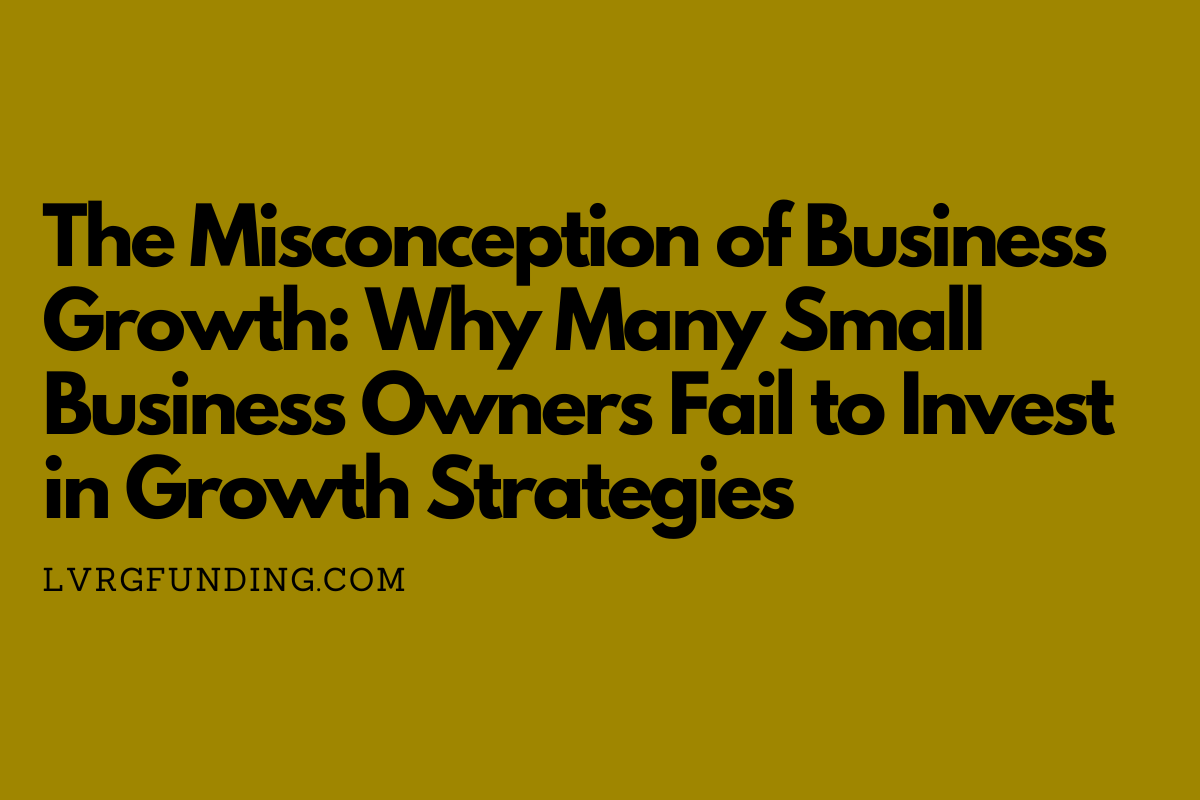The Misconception of Business Growth: Why Many Small Business Owners Fail to Invest in Growth Strategies
Introduction
The dream of every small business owner is to witness their enterprise grow and flourish. However, despite this universal aspiration, many business owners harbor a misconception about growth – the belief that their business will naturally expand without proactive efforts to fuel its growth. This misconception often leads to businesses stagnating or, worse, regressing. In this comprehensive analysis, we will delve into the reasons behind this phenomenon and explore the detrimental impact of neglecting essential growth strategies. Furthermore, this paper aims to provide actionable insights and recommendations that can help business owners rectify this misconception and pave the way for sustainable growth.
The Allure of Passive Growth
One prevalent fallacy among small business owners is the notion that success will come organically, as if by a stroke of luck or mere passage of time. This mindset breeds complacency, where entrepreneurs expect their enterprises to thrive without actively steering them towards expansion. It often stems from a belief that if the business is operational, the customers will come, loyalty will abound, and profits will soar. Thus, many entrepreneurs fail to realize that the onus lies on them to drive growth through purposeful and strategic actions.
Misplaced Priorities and Resource Allocation
Another factor contributing to this phenomenon is the misallocation of resources. Small business owners frequently channel their resources predominantly into day-to-day operations and immediate concerns, neglecting the crucial aspect of investing in growth initiatives. This shortsighted approach limits the business's capacity to innovate, expand its market reach, or enhance its competitive edge. As a result, the business remains confined within its existing framework, unable to break free from the constraints that hinder its growth potential.
Fear of Change and Risk Aversion
Concurrently, the fear of change and aversion to risk deter many entrepreneurs from venturing into growth-centric endeavors. They become comfortable with the status quo, fearing that expansion might disrupt the stability they have achieved. Moreover, the prospect of investing time, effort, and capital into uncharted territories appears daunting, prompting business owners to opt for the safety of familiarity rather than embracing the uncertainties associated with growth. This risk-averse mentality often becomes a self-imposed obstacle to the business's evolution.
The Fallacy of Limited Capacity
Furthermore, some business owners erroneously believe that their businesses lack the capacity for substantial growth. Whether due to the constraints of their current infrastructure, operational capabilities, or market presence, they resign themselves to a predetermined threshold and fail to explore avenues for scalable growth. This defeatist mindset stifles ambition and innovation, preventing the business from transcending its perceived limitations.
Conclusion
In conclusion, the misconception that businesses will naturally grow without intentional efforts is a pervasive but detrimental fallacy that inhibits the potential of countless small enterprises. To mitigate this misconception, it is imperative for business owners to embrace a proactive approach to growth, reevaluate resource allocation, confront the fear of change, and challenge preconceived limitations. By doing so, they can foster an environment conducive to sustainable growth and position their businesses for success in a dynamic and competitive market landscape.
In summary, the failure to actively invest in growth is a profound challenge that hinders the potential of many small businesses. However, recognizing and addressing this issue can empower entrepreneurs to steer their enterprises towards prosperity and longevity.
Written by Charles Barr, CEO of LVRG Funding

